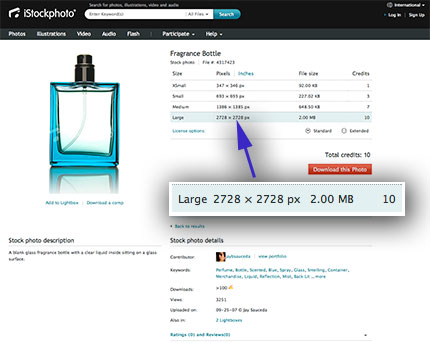When is what you normally pay for a product or service fair? Way back in 2002, friend and colleague Mark Loundy, who writes the column "Common Cents" for the NPPA's News Photographer Magazine, and the Digital Journalist online magazine, spoke with me about pricing and negotiating strategies. I told Mark that one of my favorite questions is "what's your budget" (Common Cents, September 2002), and in many ways that lets me know what level of production I am bringing to execute the assignment (flash on camera vs. 30 cases of lights and 5 assistants, etc). A few months later, Loundy cited a reader who was outraged by my "over charging" my client, and another who suggested I was "outright gouging." (Common Cents, January 2003.)
In this month's column, Loundy applauds a New York Times ethicist (and rightfully so), yet I found something also interesting earlier in the ethicist's article by a physcian who inquired "...I routinely use a downward-sliding scale to help parents in financial difficulty afford care. Many of my patients come from families with extremely high net worth. A friend suggested I charge them more. Is it ethical to use the sliding scale in both directions?"
Interesting question.
(Continued after the Jump)
The ethicist began his response, in part "You already use the sliding scale in both directions, and reasonably so. To give one person a price cut is tantamount to giving everyone else a price increase."
Indeed. If it is reasonable to give a charitable organization a discount, then it should also be reasonable to charge more to a Fortune 500 company, right?
One factor that is not being considered, when it comes to photography, is the scope of use of the images, of course. A local charity with a one year PR rights package to the images you shot at their event would have a nominal amount of use, but during the same duration of time, say, the next day, when working for that Fortune 500 company at a product launch event with the same one year PR rights package would have exponentially greater uses.
As the ethicist ends, citing the variable pricing of an airline seat based upon when you buy it, or your age for movie tickets, he notes "...psychology plays its part: it can feel different if you apparently lower a price — that’s generosity — than if you seem to raise one: that’s gouging."
9 years ago I didn't consider what I was doing, gouging, or over-charging. I was trying to work within a client's budget, and this allowed me to bring to bear a higher level of production than I might otherwise have, making the shoot easier, and, likely, increasing the quality of the final result. Also we need to take into account that knowing what our prospective client is comfortable paying is equal to their expectation of quality. By this I mean if I had offered to do the job without enquiring as to the budget and given a price far below one they were used to paying one of two things happen in the clients mind. Either I am a bargain or considered to good to be true in the same way a car for $500 comes with issues. I want my clients to know and believe they are getting the best. I never want to leave money on the table and with all services that are negotiated it is just that a negotiation, the client and myself can decided to walk away at anytime. I am a business and therefore in it to make a living, to live a standard of life I am comfortable with. My clients have budgets and deadlines and they to are trying to make money. This is not a parasitic relationship it is a symbiotic one, and it's life.
When you give a discount to a client, make it a good reason. For instance, they are booking you for a dozen days in a month, or they are a long-term repeat customer who needs some help. When you charge greater than what you might otherwise charge, make sure you bring a higher level of service than normal, and you might just realize that working at that level of service, production, and quality, is something to aspire to do more of, and then, you'll be raising your rates for a good reason. In no case though, would you be price-gouging. Gouging, in my estimation, happens when you have a captive audience that has no other choice and no other resources to turn to. Further, we live in an environment of supply vs. demand, and when supplies dwindle, and demand remains the same, then prices will naturally increase, and rightly so.
Lastly, more often than not, some clients have a budget that they have to spend, and if they don't, they lose it. A PR firm or ad agency will have, say, a $10,000 budget for photography, of which they will get their standard 17% markup, or $1,700. If you agree to do the $10k job for $5k, you just cost them $850 of their markup, and if something goes wrong on the shoot, the client could well say "why did you hire a 1/2 price photographer - that' probably the reason this is all screwed up...". The list goes on and on. Never assume. Always ask the budget, and know that the first number that comes out is almost always lower than the real number.
Please post your comments by clicking the link below. If you've got questions, please pose them in our Photo Business Forum Flickr Group Discussion Threads.
[More: Full Post and Comments]





